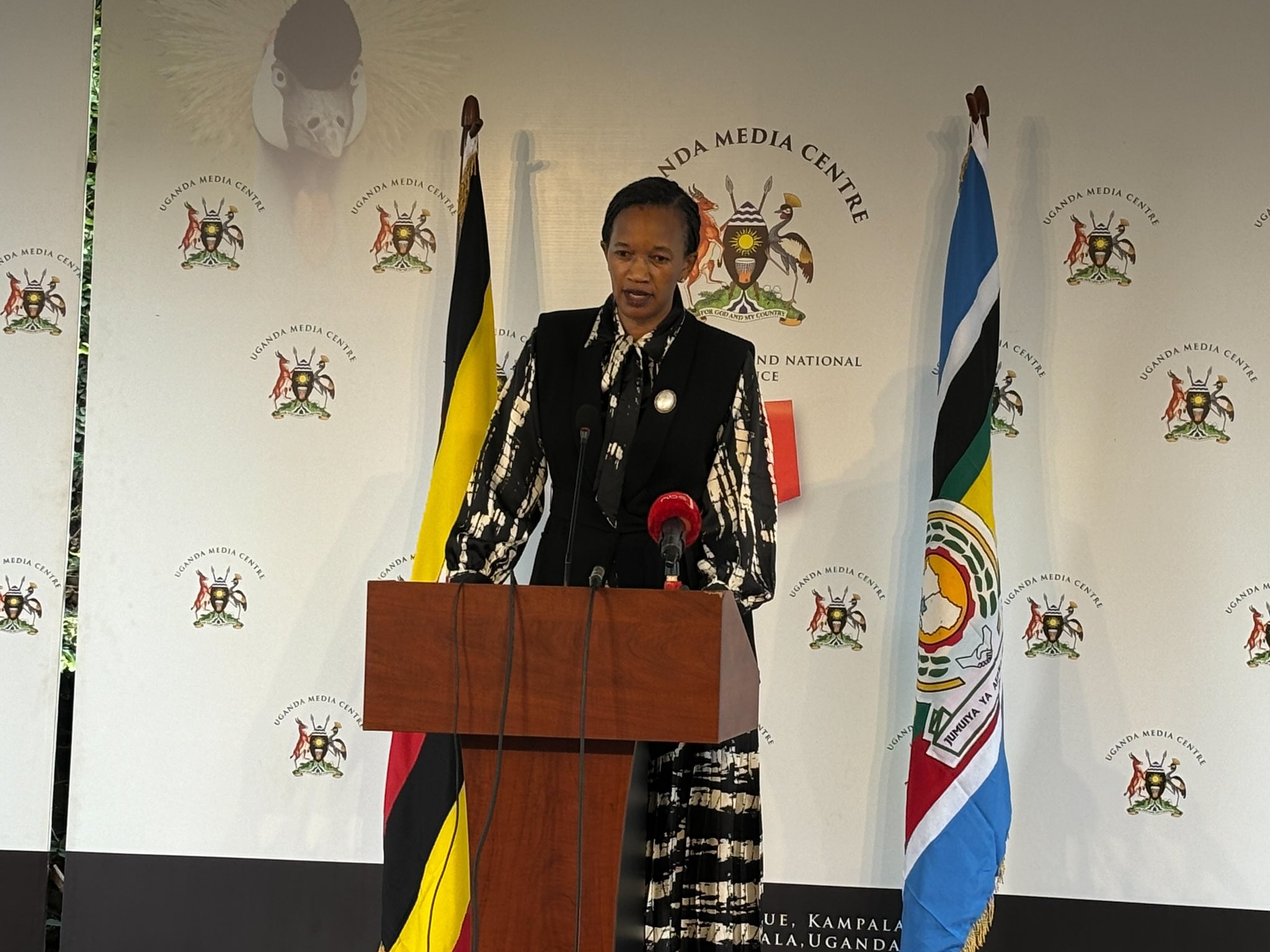
The Minister of State for Labour Employment and Industrial Relations, Esther Davina Anyakun, has said that Saudi Arabia has agreed to release and deport Ugandans in Saudi Arabia prisons with the exception of those charged with murder and drug trafficking.
Anyakun made these remarks while addressing the press at the Uganda Media Centre in Kampala on Monday, October 21, 2024, saying that the Ugandans who have been held in the Saudi Arabia deportation centers will be deported within 60 days.
“I have the pleasure to announce that the Kingdom of Saudi Arabia has agreed to pardon Ugandan migrant workers who have been stranded in deportation centers and prisons across the country, and they should be here in 60 days from now,” she said.
Anyakun noted that from October 14-17, 2024, she led a Ugandan delegation to Riyadh, Kingdom of Saudi Arabia, for a technical visit where they engaged with the Minister of Human Resources and Social Development of the Kingdom of Saudi Arabia, H.E Eng. Ahmed Alraijhi, who promised to have the repatriation process quickened.
“In a gesture of goodwill, the Saudi government has further pledged to expedite their repatriation back to Uganda and support their reintegration,” she added.
The minister further cautioned Ugandans who travel to Saudi Arabia, especially for the Hijja, to desist from being used in trafficking drugs to Saudi Arabia since it has been shown that most of those in prisons were arrested during Hijja. She added that for those on drug trafficking, there is no compromise, and they will have to serve their sentence.
Additionally, Anyakun said that all Ugandans going to work in the Middle East moving forward will have to get a recommendation from the Ministry of Gender Labour and Social Development before traveling.
Read Also: Trapped and Tortured: Ugandan Migrant Workers in the Middle East Call for Help
Husna Nampijja, a Director at Gomstel Uganda Limited, a recruitment company that takes Ugandans to Saudi Arabia for work, welcomed the minister’s comments on recommending individuals to work in the Middle East. She, however, said that it may not solve the problem.
“If someone wants to engage in drug trafficking, they can still come and get the recommendation from the ministry, and on the day of departure they will still plan and carry whatever they want to carry; some of them arrange their own flights; all we do is connect them where to work, and they travel on their own,” Nampijja said.
Saudi Arabia is the biggest labor externalization destination for Ugandan migrant workers, accounting for over 150,000 workers. Uganda and the Kingdom of Saudi Arabia signed a bilateral labor agreement in 2023 that places responsibility on the host country to provide for the rights of Ugandan workers externalized.
Ugandan migrant workers in the Middle East alone contribute about USD 900 million (over UGX 3.2 trillion) per annum to the Ugandan economy.